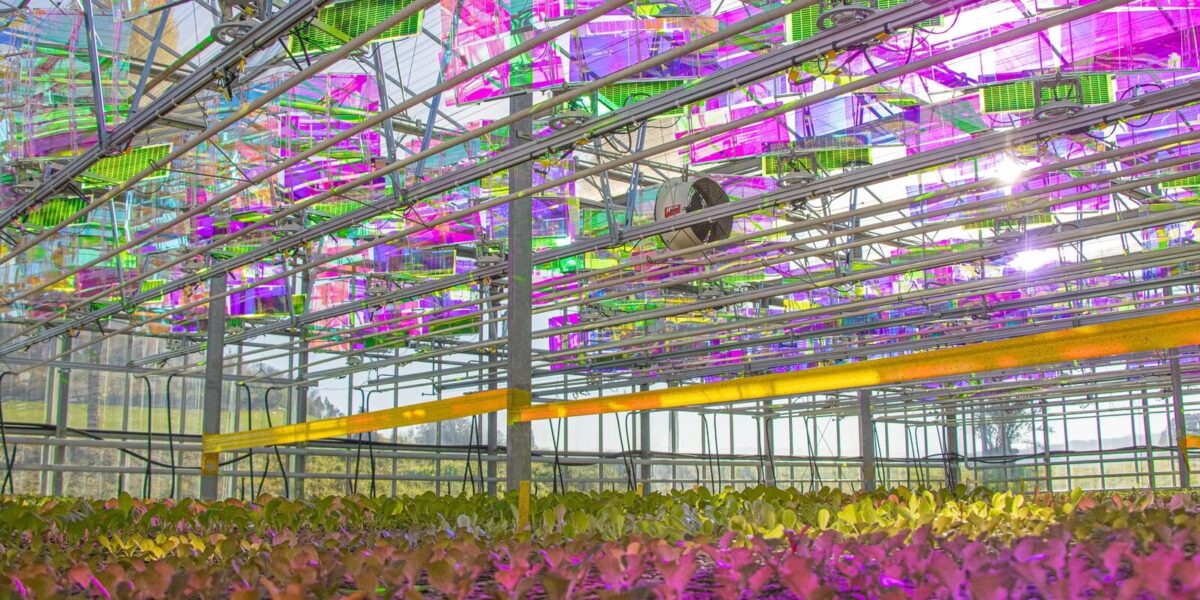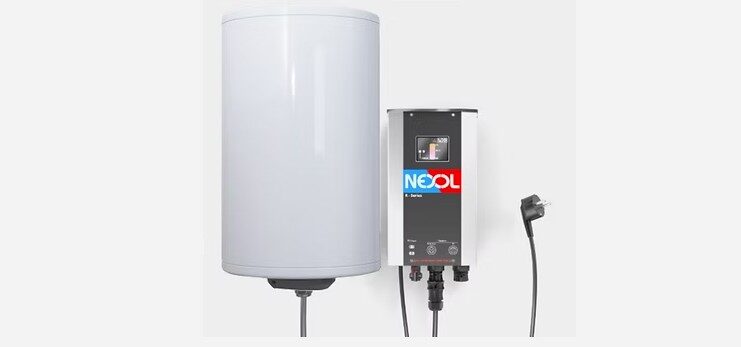Swiss-based agrivoltaics specialist Voltiris is offering a novel solution based on a patented under-roof dichroic mirror concentrator system that integrates tracking systems and silicon PV panels.
The system is intended to specifically serve greenhouses to improve the metrics for heating, electricity costs, and CO2 emissions, while maintaining crop yields.
Its latest pilot project is in partnership with Swiss utility Genossenschaft Elektra Baselland (EBL), providing a solution for leafy green vegetable-growing greenhouses owned by Füllinsdorf-based Eschbach Gemüsebau.
“Greenhouse growers face immense pressure to cut CO2 emissions. Voltiris will be the catalyst for their electrification, enabling growers to generate an independent, profitable, and sustainable energy source,” Nicolas Weber, Voltiris CEO and co-founder, told pv magazine. “Our mission is to convert thousands of hectares of underutilized greenhouse surfaces into solar power fields, ensuring a successful and green transition for the industry.”
Voltiris has developed a wavelength-selective PV system based on dichroic filters on mirrors that enable the plants below to receive the light they need to thrive while optimizing the light required for the solar panels.
In greenhouses, it is important to avoid the kind of shading that would occur with conventionally installed PV panels because the “rule of thumb” for most greenhouse crops, according to Voltiris, is that 1% light loss is 1% agronomical yield loss.
The Voltiris team recently recorded a peak power of 145 W/m2, as confirmed by co-founder and CTO Jonas Roch who explained to pv magazine that to be able to reach 145W/m2 with a checkerboard, or chessboard, type of bifacial solar PV installation would result in “about a 70% light loss for the crops,” which he noted would represent “an unacceptable outcome for greenhouse growers.”
Founded in 2022 and headquartered in Lausanne in the western part of Switzerland, Voltiris has a subsidiary in the Netherlands. To-date, it has installed 700 modules in 12 different greenhouse projects.
This year it received a CHF 500,000 ($564,000) technology product development loan from Lausanne-based Foundation for Innovation and Technology (FIT), which promotes entrepreneurship in Vaud. The EPFL spinoff raised CHF 1.4 million in pre-seed venture capital financing in December 2022.

Image: Voltiris
This content is protected by copyright and may not be reused. If you want to cooperate with us and would like to reuse some of our content, please contact: editors@pv-magazine.com.



By submitting this form you agree to pv magazine using your data for the purposes of publishing your comment.
Your personal data will only be disclosed or otherwise transmitted to third parties for the purposes of spam filtering or if this is necessary for technical maintenance of the website. Any other transfer to third parties will not take place unless this is justified on the basis of applicable data protection regulations or if pv magazine is legally obliged to do so.
You may revoke this consent at any time with effect for the future, in which case your personal data will be deleted immediately. Otherwise, your data will be deleted if pv magazine has processed your request or the purpose of data storage is fulfilled.
Further information on data privacy can be found in our Data Protection Policy.